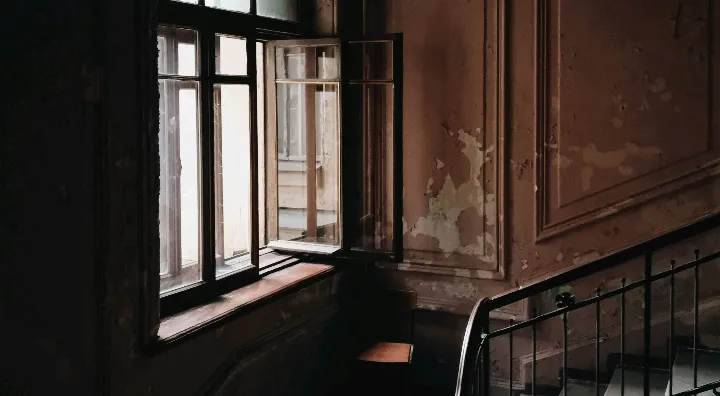Her Father's Killer (Part 4 - The Old House)
Maria walked out of the Coimbatore airport, stopped for a while and breathed in the air. She couldn't recognise it. All familiarity had been replaced by another city and her hometown suddenly seemed so foreign. Maria sighed and approached the taxi stand. Her mother had made it a point to teach her Tamil and teach it well. She hopped into a taxi and headed for her old home.
To be honest, Maria never really wondered what had become of the house. She was too young. And young children, although impressionable, have a short attention span. In a new city, with the help of a child psychiatrist, she had settled in, gone to school, made new friends, and the memories of that fatal night lay in a dust-covered chest at the back of her head, forgotten. Maria barely noticed the city but she watched her silhouette against the setting sun and his purplish orange hues. The taxi sped past every insignificant detail and by nightfall, it slowed down. Arun, the taxi driver, rolled down the windows and poked his head out, asking passerbys for directions. And soon, there it was, standing in the dark, her old home, waiting to be awakened.
Maria absent-mindedly paid the fare and nodded at Arun. She did not seem to notice the taxi leave. Maria stared at the house, standing outside the old and mouldy wooden gates. After what seemed like an eternity, she unlatched the gates and walked in.
Trees and shrubs, which were once part of a beautiful garden, now unkempt and wild, loomed dangerously on the right side of the compound. Maria shuddered at the menacing sight, tore her eyes away, and walked down the graveled path leading up to the eerie...
To be honest, Maria never really wondered what had become of the house. She was too young. And young children, although impressionable, have a short attention span. In a new city, with the help of a child psychiatrist, she had settled in, gone to school, made new friends, and the memories of that fatal night lay in a dust-covered chest at the back of her head, forgotten. Maria barely noticed the city but she watched her silhouette against the setting sun and his purplish orange hues. The taxi sped past every insignificant detail and by nightfall, it slowed down. Arun, the taxi driver, rolled down the windows and poked his head out, asking passerbys for directions. And soon, there it was, standing in the dark, her old home, waiting to be awakened.
Maria absent-mindedly paid the fare and nodded at Arun. She did not seem to notice the taxi leave. Maria stared at the house, standing outside the old and mouldy wooden gates. After what seemed like an eternity, she unlatched the gates and walked in.
Trees and shrubs, which were once part of a beautiful garden, now unkempt and wild, loomed dangerously on the right side of the compound. Maria shuddered at the menacing sight, tore her eyes away, and walked down the graveled path leading up to the eerie...



